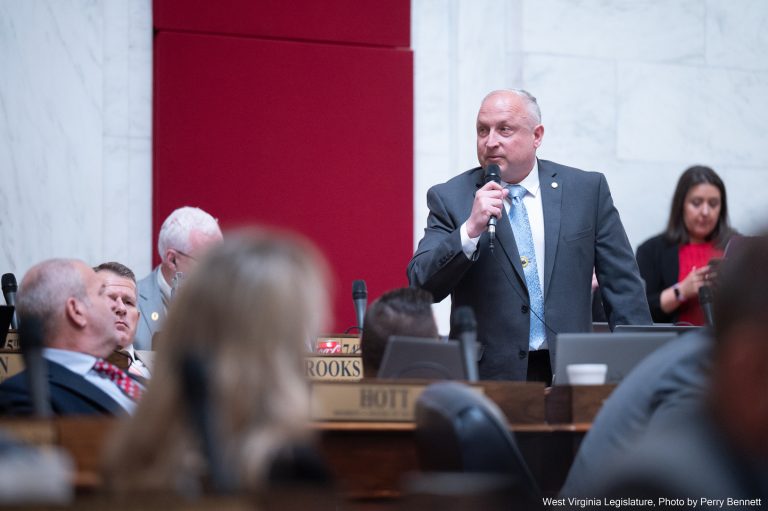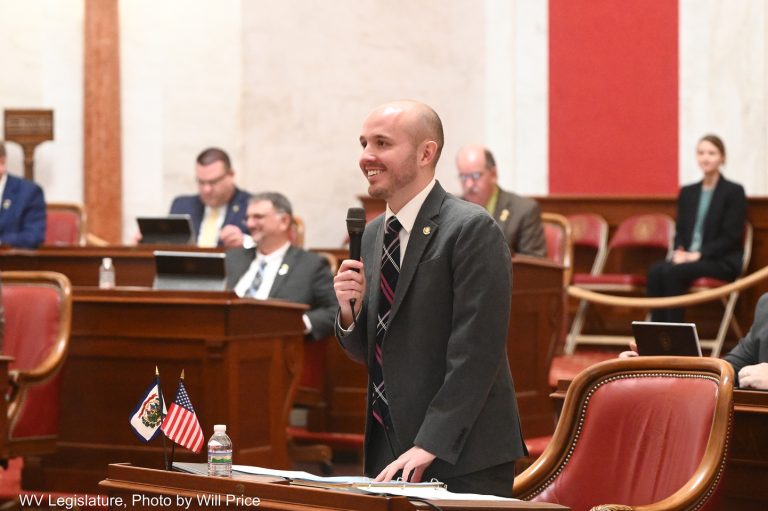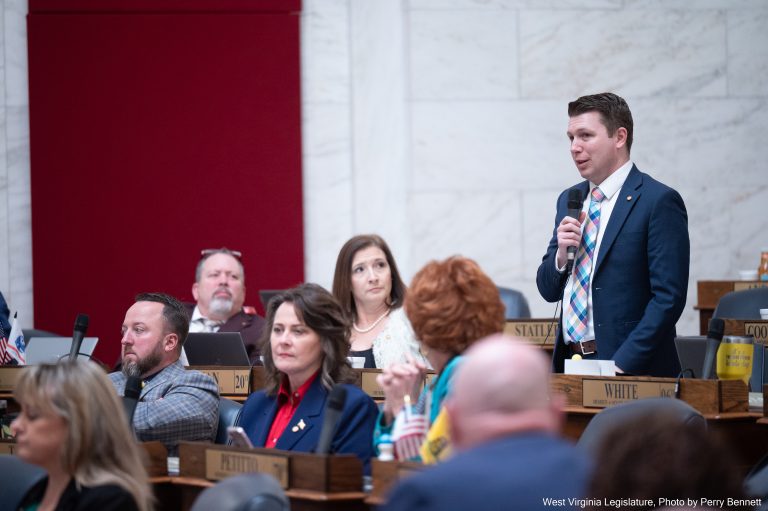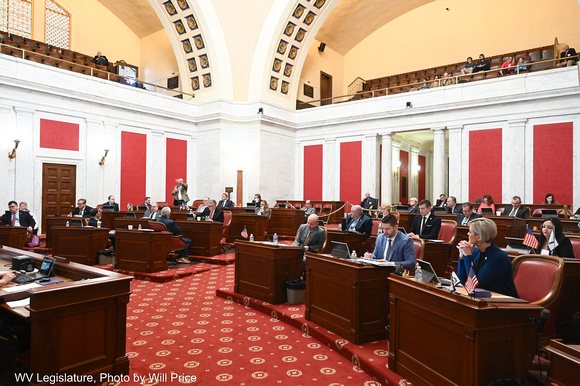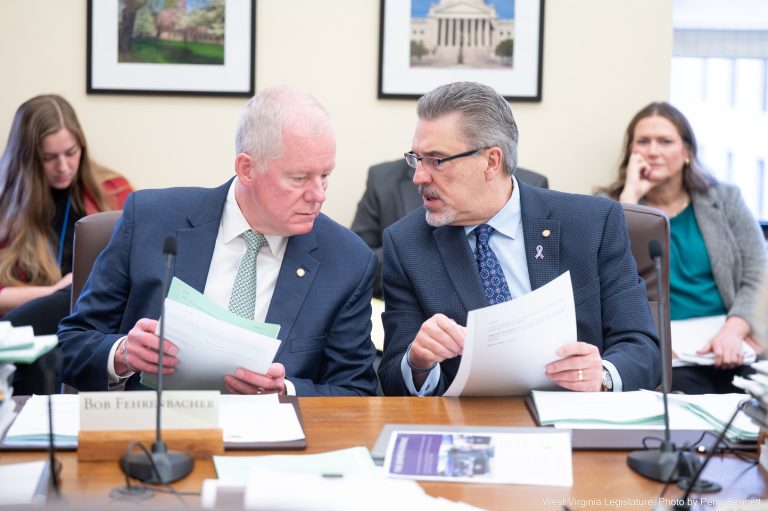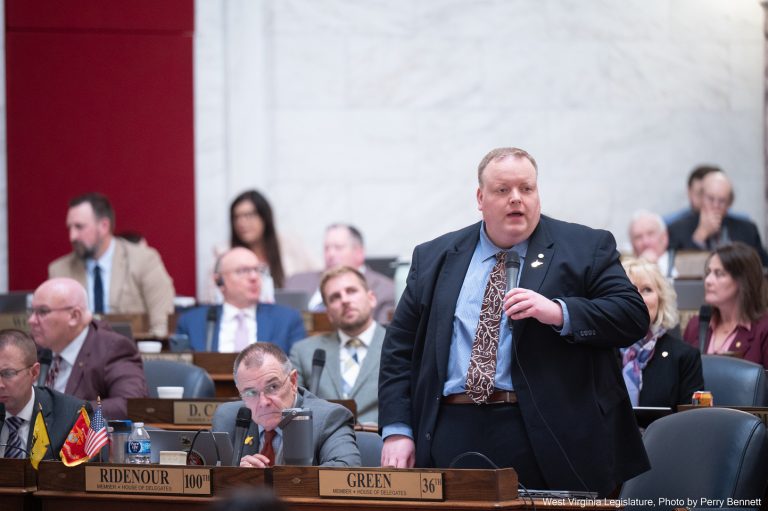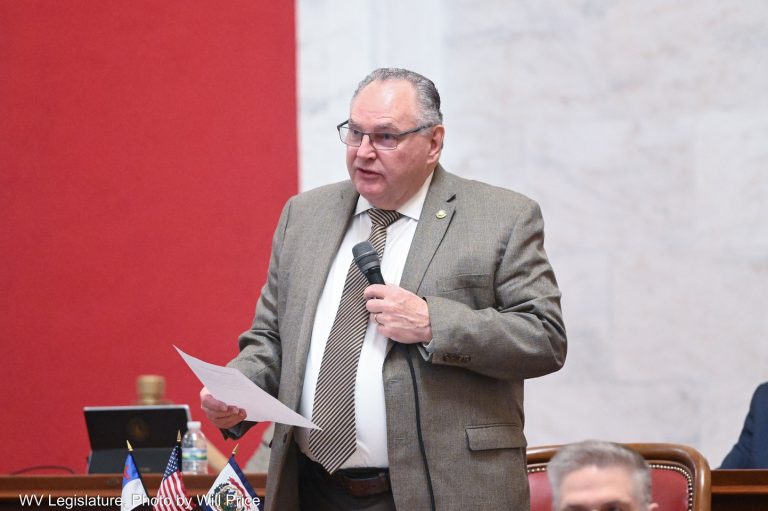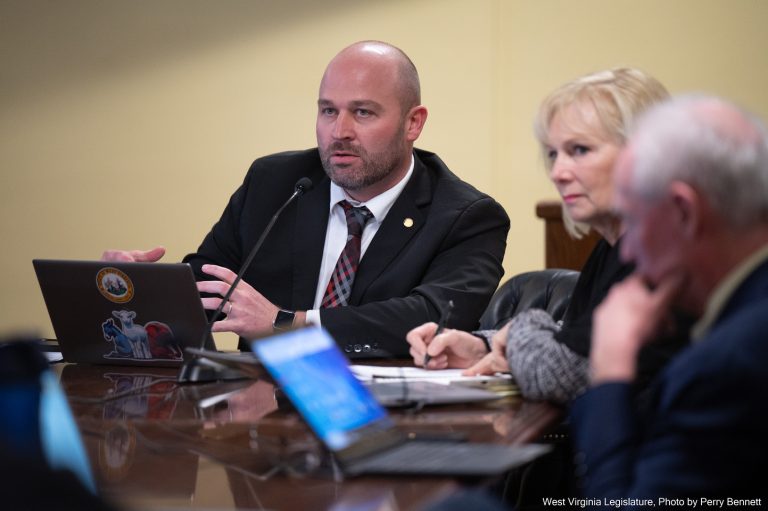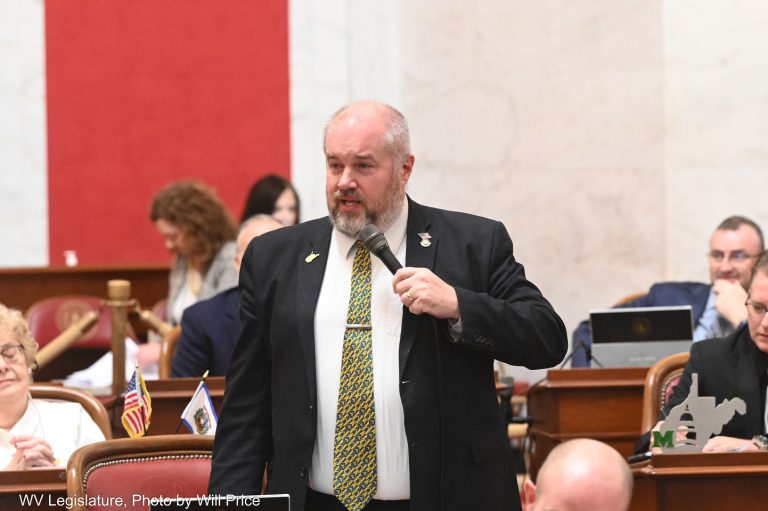On Day 42 of the Legislative Session, the House passed 13 bills including the following:
Senate Bill 199 works to address student behavior by requiring that before an excluded student is readmitted a school counselor, school social worker, or school psychologist develop a behavioral plan for re-entry. The bill requires that either the school counselor or a school social worker participate in the conference before a student who’s excluded two times in one semester can be readmitted, and requires that a school social worker establish and implement a behavioral plan.
Senate Bill 283 allows students to take personal finance courses in 9th or 10th grade to satisfy graduation requirements.
House Bill 2646 permits students in 8th and 9th grade to attend summer school to raise grades for eligibility in fall sports.
House Bill 2043 permits the use of drones for tracking mortally wounded wildlife. The bill also limits dog handlers to one dog, when tracking. Anyone using a dog or a drone not on their property must be licensed. Drones cannot be used on other properties without permission from the property owner.
House Bill 3504 adds licensed livestock stockyard facilities, licensed livestock slaughter facilities, and licensed commercial poultry facilities to the definition of critical infrastructure. This bill was originally part of HB 2043 but was separated into a separate bill during a Rules Committee meeting. Trespassing on critical infrastructure carries an enhanced penalty.
House Bill 2960 implements a two-year pilot program where the Division of Highways will hire multiple vendors for snow removal on secondary roads in Monongalia and Preston Counties. Vendor contracts may be terminated by the Secretary of the Division of Highways with 30 days’ notice if a vendor’s performance is unsatisfactory.
House Bill 3343 was amended. The bill adds crystalline polymorph psilocybin to the permitted list of distributed and prescribed drugs if approved and scheduled or de-scheduled by the Food and Drug Administration and Drug Enforcement Administration. The amendment adds that organic psilocybin will also be permitted if approved and scheduled or de-scheduled by the Food and Drug Administration and Drug Enforcement Administration.
The House is adjourned until 11 a.m. tomorrow, March 26, 2025.
Committee Meetings, Today March 25
- The Committee on Government Organization will meet at 1 p.m. in Room 215E.
- The Committee on Education will meet at 1:30 p.m. in Room 432M.
- The Subcommittee on Energy and Public Works will meet at 3 p.m. in Room 410.
- The Committee on Health and Human Resources will meet at 3:30 p.m. in Room 215E.
Committee Meetings, Tomorrow March 26
- The Finance Committee will meet at 9 a.m. in Room 460.
- The Judiciary Committee will meet at 9 a.m. in Room 410.
- The Rules Committee will meet at 10:45 a.m. in the Speaker’s Conference Room.
- The Committee on Education will meet at 1 p.m. in Room 432M.
- The Subcommittee on Agriculture, Commerce, and Tourism will meet at 1 p.m. in the McManus Room.
- The Committee on Government Organization will meet at 1:30 p.m. in Room 215E.
- The Subcommittee on Energy and Public Works will meet at 3 p.m. in Room 410.
- The Committee on Health and Human Resources will meet at 3:30 p.m. in Room 215E.


